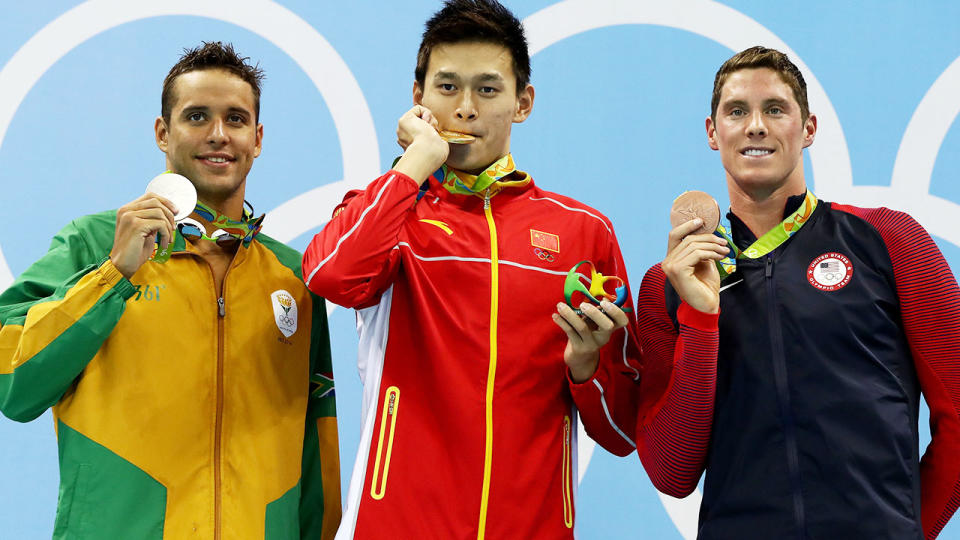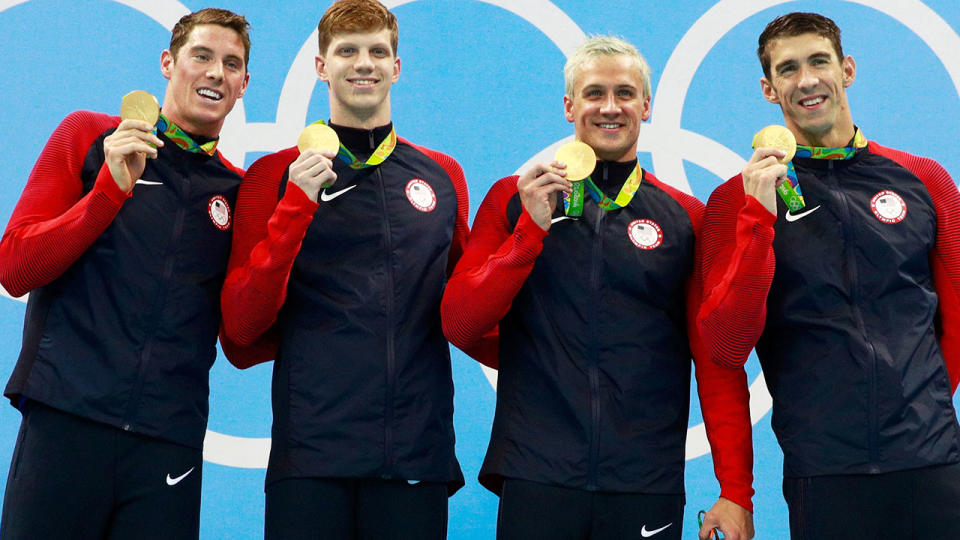Olympic gold medallist banned in shock new swimming scandal
Olympic gold medalist Conor Dwyer has announced his retirement, shortly after receiving a 20-month doping ban for having testosterone pellets inserted into his hip.
The 30-year-old Dwyer, who won relay gold medals in 2012 and 2016 and an individual bronze in 2016, tested positive three times between November 15 and December 20 last year.
His ban was made effective on December 21, meaning he wouldn't have been eligible for next year's Olympics.
[Join or create a 2019 Yahoo Fantasy Basketball league for free today]
In a news release sent out by his lawyer shortly after his suspension was made public, Dwyer called taking the prohibited substance “an honest but unfortunate mistake.”
“Regardless of the result of the arbitration ruling, I have decided to retire from swimming to pursue other professional interests,” Dwyer said.

A three-person arbitration panel heard the case. In its decision, the panel wrote that Dwyer worked with a nutritionist who suggested the pellets, which are inserted into the skin tissue near the hip.
The decision says a doctor treating Dwyer claims to have contacted an official at the US Olympic and Paralympic Committee, who said the treatment was allowable.
But, the report says, neither Dwyer, his doctor nor his nutritionist followed up with the US Anti-Doping Agency, which makes its rules and list of banned substances public and also has a hotline to respond to questions.
“It's frustrating that Mr. Dwyer did not take advantage of this support, and hopefully, this case will convince others to do so in order to protect fair and healthy competition for all athletes,” USADA CEO Travis Tygart said.

Dwyer sentence slightly reduced
The arbitrators gave Dwyer a slightly reduced sentence in part because he argued that he wasn't using the pellets for performance but rather to mitigate “health concerns which were causing him to have a high degree of stress.”
Dwyer's nutritionist testified that Dwyer had over-trained in the lead-up to the Rio Games ''and he came home from the Games feeling tired, with brain fog, fatigue, inability to sleep and generally 'never got his mojo back.'''
In his statement, Dwyer said he received assurances from his doctor that the USOPC had approved of the treatment.
''Absent of these assurances, I never would have agreed to this medically necessary treatment,'' Dwyer wrote.
